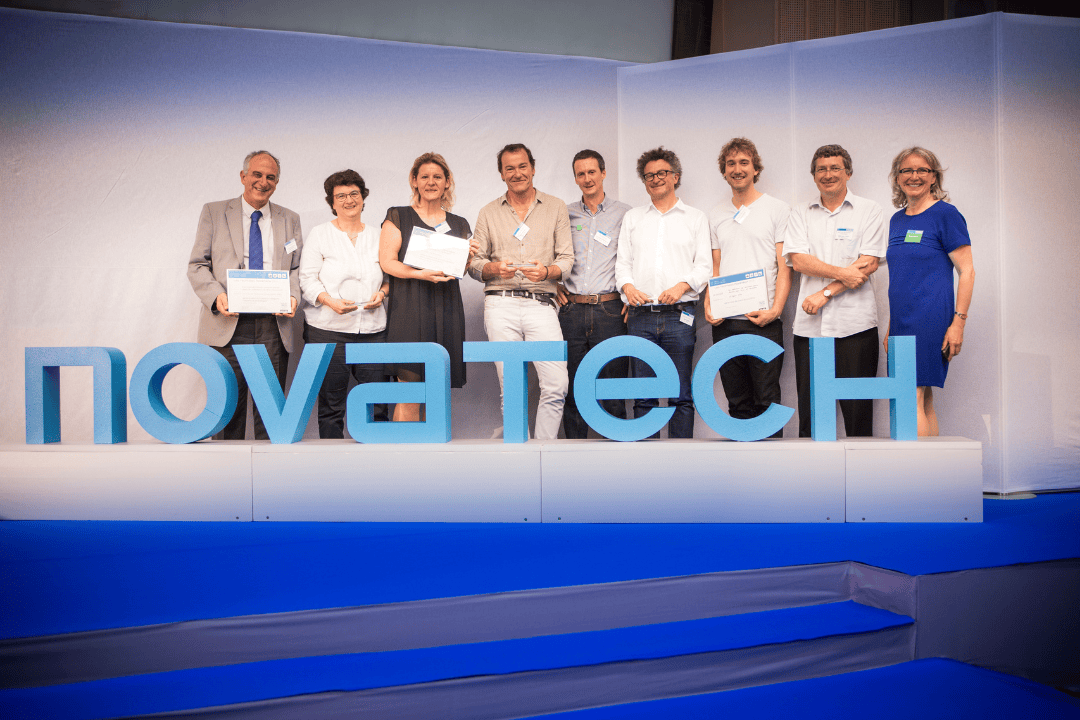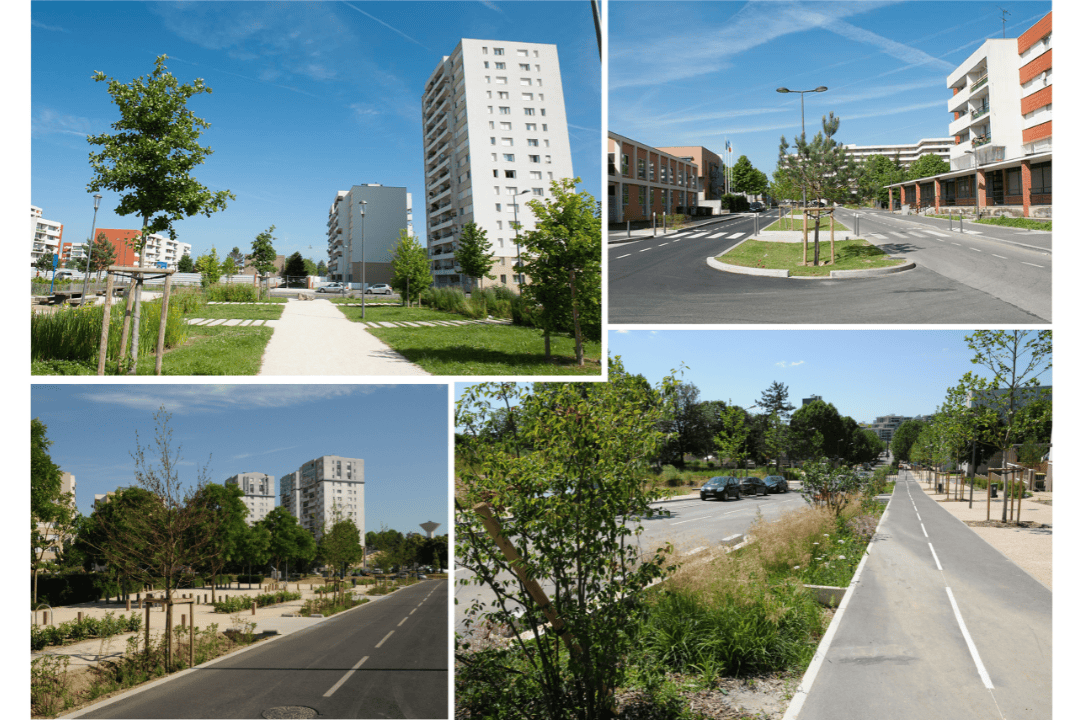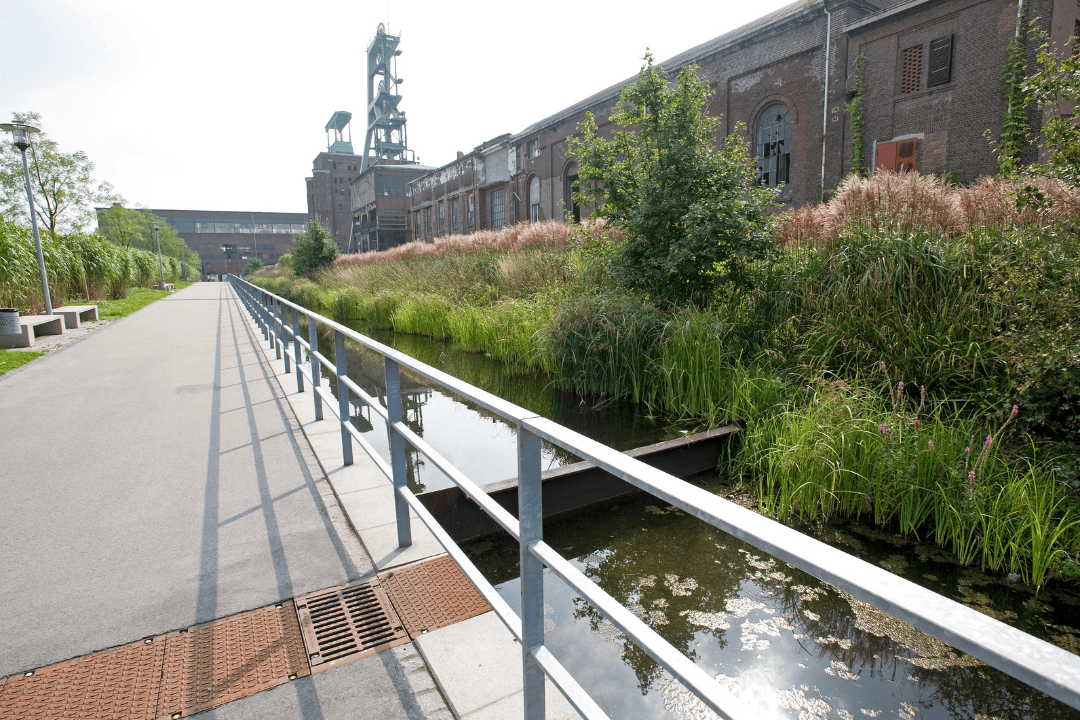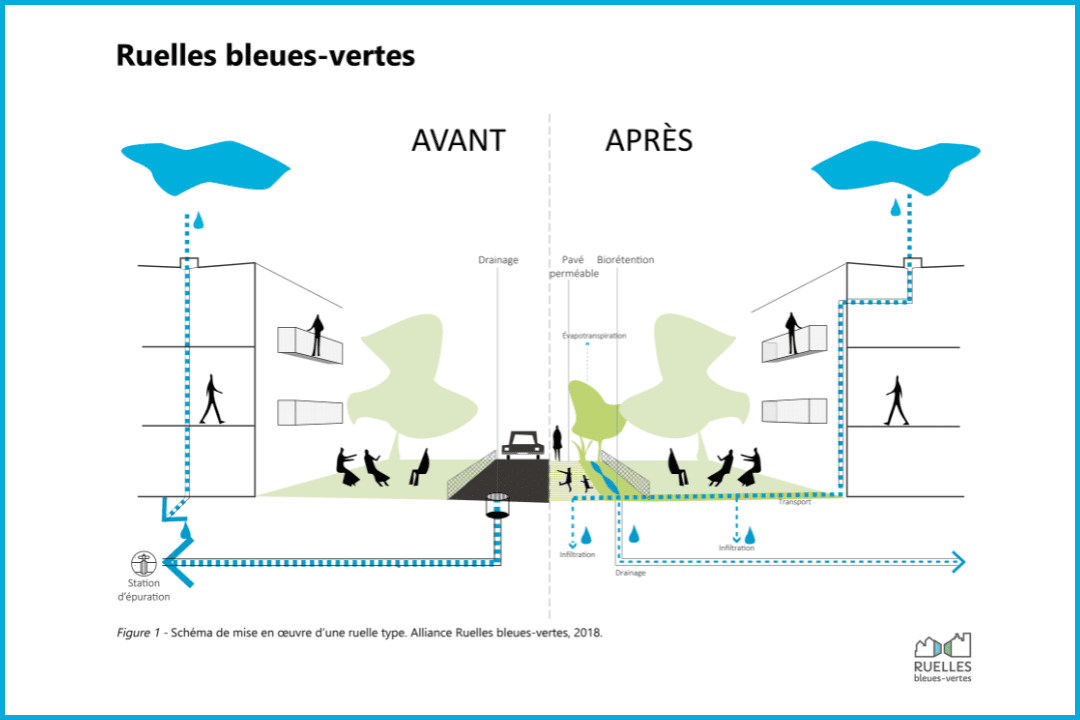
Expected abstracts
The aim of the Thierry Maytraud Awards is to reward, promote and raise awareness of exemplary or innovative public initiatives and policies that promote the integration of stormwater and sustainable water management in land use planning.
The initiatives must have been completed and/or the strategies implemented (not just planned).
THEMES
DEVELOPED APPROACHES
CRITERIA SELECTION
THEMES
3 categories are proposed:
- Urban renewal: on public or private land, brownfield rehabilitation, architectural project, neighborhood or precinct
- Strategies and urban planning: public policy, planning, city or catchment scale strategies
- Participation and cross-sectoral community engagement: local engagement activities with communities, agencies, private business and urban developers etc.
DEVELOPED APPROACHES
The approaches we would like to see developed in the presentation of these achievements are multidisciplinary and cross-cutting. They can be presented by several speakers.
They relate in particularly to:
- The professional organisation, multi-professional and multi-partners, from the design to the social acceptability and the individual’s place in the project
- The strategies, methodologies developed to join the different aims and objectives of a project, from design to management
- The ”positive externalities” of the project, its contributions to the environmental quality, the improvement of urban biodiversity and adaptation to climate change.
- The economic and financial issues
CRITERIA SELECTION
The jury will take into account the following criteria in selecting the Award winners:
- Integration of stormwater management within the project,
- Use of an integrated sustainable development approach (environment, economy and society) within the overall project,
- Collaboration, partnership and good governance,
- Innovation,
- Transferability and potential to provide lessons for broader application
The results of the jury's preliminary selection of finalists will be announced in March 2026. Applications not selected as Maytraud Awards finalists will still be eligible for a “standard” presentation (oral or poster) at Novatech.
Winners will benefit from a publication and a strong promotion of their project in the technical press (details to be announced in early 2026).
How to participate
2. Content of your application
A 4-page abstract with the detailed presentation responding to the selection criteria must be submitted. It must be conform to the author guidelines and the Novatech document template. The abstract may include additional illustration pages (maps, figures, pictures, etc). Applicants will receive an email confirming that their abstract submission has been received.
Your application may be written in French or English. The first page should include a summary in both languages.
URBAN RENEWAL
STRATEGIES AND URBANISM
PARTICIPATION AND COMMUNITY ENGAGEMENT
URBAN RENEWAL

Winner of 2016
Les Mureaux : integrated stormwater management for large-scale, high-quality urban renewal
(Ville des Mureaux, Bureau d’études INFRA Services - FRANCE)This urban renewal project, carried out in the municipality of Les Mureaux (78), covers an extremely dense area of 70 hectares. The project involved the renovation of public and private spaces and the creation of a large landscaped park, within which a watercourse will be brought back into the open. The initial program did not include any rainwater disconnection, but the project manager proposed implementing an integrated management system based on natural infiltration and plot-by-plot management. The creation of a “toolbox” of alternative techniques made it possible to achieve these objectives. By facilitating the choice of techniques and their combinations, alternative management could be adapted to all types of spaces to be redeveloped.
This approach helped to launch a real environmental dynamic, including the reopening of the Ru d'Orgeval stream in Parc Molière. The quality of the overall project, as well as its stormwater management, was recognized as the work progressed. This resulted in the project being funded by the Seine-Normandy Water Agency for the disconnection of stormwater. The project obtained the Eco-Quartier label, which was not one of the initial objectives. In addition, the Parc Molière project has been certified HQE (High Environmental Quality) for development: this is a first in France.
STRATEGIES AND URBANISM

Winner of 2013
A "agreement for the future" on runoff water: towards a balanced drainage system
(Ulrike Becker, Michael Raaschn, Emschergenossenschaft - GERMANY)
A "agreement for the future" on runoff water: towards a balanced drainage system
(Ulrike Becker, Michael Raaschn, Emschergenossenschaft - GERMANY)
The stormwater management system in the Emscher River watershed has been undergoing extensive renovation since the 1990s. As part of this process, the organization responsible for managing the Emscher River and its watershed has been working to implement a large-scale sustainable stormwater management system throughout the entire river basin. The numerous projects that have been carried out demonstrate a great capacity for developing different concepts.
In 2005, all municipalities in the basin signed the “Agreement for the future for stormwater management,” which has the ambitious goal of improving runoff in the Emscher affluents and minimizing the costs of constructing and maintaining underground drainage infrastructure. They have thus committed to reducing stormwater inflows to wastewater treatment plants by 15% by 2020. To achieve the objectives set out in the agreement, the municipalities concerned are pursuing different strategies.
PARTICIPATION AND COMMUNITY ENGAGEMENT

Winner of 2019
Blue-green alleys in Montreal: a new paradigme for sustainable stormwater management governance
(Alliance Ruelles Bleues-Vertes, Université de Montréal, Centre d’Écologie urbaine de Montréal, Société d’habitation pour l’est de Montréal, Collectif 7 à nous, Vinci Consultants, Les Ateliers Ublo - CANADA)
Climate change and its impact on communities require a paradigm shift in the way we manage our living environments. The current Canadian governance framework for water management is divided into three levels: the Department of the Environment, which issues Canada-wide standards for municipal wastewater effluent quality; provincial governments, which implement laws and regulations; and local governments, which are responsible for wastewater treatment.
In metropolitan Montreal, these climate changes are already noticeable, and since the 1960s there has been a marked increase in precipitation. Municipal authorities must therefore plan for the development of new water management infrastructure. Rather than repeating old development models, why not mimic nature? It is in this context that the Blue-Green Alleys Alliance was created to propose the integration of stormwater management into the development of green alleys and a new model for stormwater governance in metropolitan Montreal.
